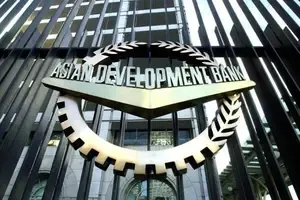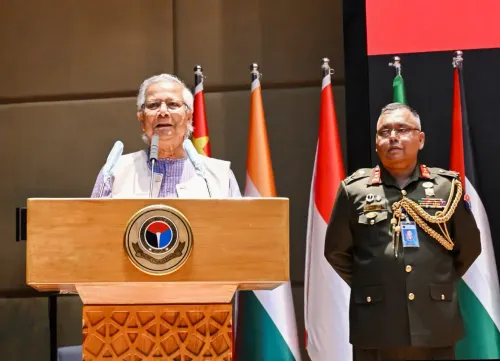Can ADB's New Energy Policy Revolutionize Nuclear Power Support?

Synopsis
Key Takeaways
- The ADB is now able to support nuclear power projects.
- Stringent safety and oversight measures are prioritized.
- Collaboration with the IAEA is crucial for implementation.
- New amendments also cover methane management and CCUS technologies.
- 3.8 billion US dollars is allocated for energy projects in 2024.
Manila, Nov 25 (NationPress) The Asian Development Bank (ADB) has announced that modifications to its energy policy will enable the organization to finance nuclear power projects for the first time, provided there are stringent safeguards and international oversight in place.
In a statement released on Monday (local time), the Manila-based financial institution stated that the revised policy "opens the door" for the ADB to back nuclear energy, including financing for developing member countries that choose to incorporate it into their energy strategy.
However, any support will be subjected to "thorough evaluations and the utmost standards of safety, security, along with environmental and social safeguards."
The bank will collaborate closely with the International Atomic Energy Agency (IAEA) and other global authorities to assist its developing member nations in adopting international best practices and adhering to rigorous nuclear power standards, according to reports from Xinhua news agency.
"These changes significantly bolster ADB's capability to assist countries in Asia and the Pacific as they strive to fulfill their rapidly expanding energy demands," remarked ADB President Masato Kanda.
"Nuclear energy, for instance, is a vital technological option for nations seeking dependable alternatives for baseload electricity," he added.
Kanda is anticipated to sign a partnership agreement with the IAEA this week to further these aims.
Additionally, a new amendment allows the bank to finance initiatives targeting the management of methane, a highly potent greenhouse gas, and to reduce routine gas flaring in existing oil and gas operations.
Recognizing the essential long-term function of carbon capture, utilization, and storage (CCUS), the ADB has been backing CCUS technologies in power facilities and other challenging sectors.
A third amendment broadens this support to CCUS projects that utilize depleted gas and oil wells for carbon dioxide storage.
The fourth amendment acknowledges the ADB's potential role in facilitating the development of diverse and responsible critical minerals-to-manufacturing value chains.
These updates are part of a mandatory scheduled review of the existing energy policy, approved in October 2021, and were shaped by comprehensive consultations with ADB's stakeholders.
In 2024, the ADB allocated approximately 3.8 billion US dollars to energy initiatives. The bank has also been instrumental in enhancing policy and regulatory frameworks to attract greater private-sector investments and address the region's swiftly growing energy needs.









